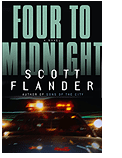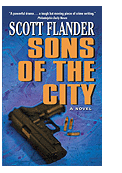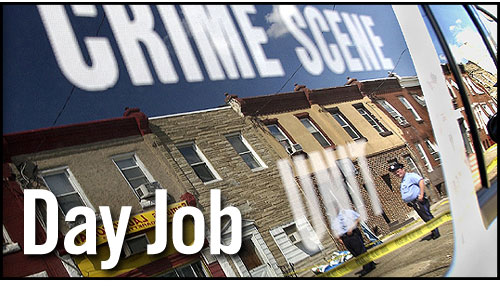  
|
|
 HEY, PAL, PULL OVER!
STEER CLEAR!Zero tolerance means slow down or pay Police step up traffic law enforcement on I-95 and the Schuylkill Expressway IF YOU'RE one of those jerks on the Schuylkill Expressway and I-95 who hurtles down the highway, riding the back bumper of one car after the next, forcing people out of the way, maybe you should take a look in your rear-view mirror. See those flashing red and blue lights? That's a police car, pal. And it's pulling you over. And guess what? You're not getting a warning. You're getting a ticket. A very expensive one. The Philadelphia Police Highway Patrol Unit has launched a major crackdown on speeders, tailgaters, idiots who weave in and out of lanes without signaling—all kinds of aggressive drivers. You know who you are. Since late March, when the crackdown started, the cops have been writing nearly four times as many speeding tickets as usual. There's also been a sharp increase in tickets for tailgating and other dangerous maneuvers. Capt. Thomas Nestel, the new commander of Highway Patrol, has begun a "zero-tolerance" attack on aggressive drivers. Zero tolerance means no warning. You get stopped, you get a ticket. Nestel's goal is to cut the number of crashes on the highways. And, he says, it's already working. Crashes on the Schuylkill, I-95, and the other roadways covered by the Highway Patrol were down more than 13 percent from April 1 through June 15 compared to the same period last year. And with word of the crackdown spreading, Nestel expects an even more dramatic decline during the rest of the summer. Nestel says he wants law-abiding people to be able to travel the highways without fear. "Right now that's not the case," he says. "I think people are afraid to go on I-95, and they're deathly afraid to go on I-76. The nickname, the Sure-kill Expressway, it got that for a reason." Several Highway Patrol officers the Daily News recently rode with had no problem finding aggressive drivers. Officers usually cruise in one of the slower lanes, watching the traffic flow ahead of them like a river. It doesn't take long before they notice a car that breaks the smoothness like a buzzing fly—someone going much faster than the rest of the traffic. This guy comes right up on the tail of the car in front and stays there until the other driver, intimidated, moves over. Then he races on to the next car, forcing that one over, then the next, and the next. It's a recipe for a high-speed crash, officers say. If the driver in front slows too quickly—perhaps because of slower traffic ahead—he'll be rear-ended by the tailgater. If he panics and suddenly swerves into the next lane, he could clip another car. It happens all the time. These possibilities seem not to bother the typical tailgater. He wants that driver to get the hell out of his way, NOW. And if by some chance the driver ahead doesn't move fast enough, he'll go around, sometimes swinging across two or even three lanes, often without signaling, often cutting off other cars. And when this guy gets stopped, he'll have his excuse ready: "I was just going with the flow of traffic." Which, of course, was exactly what he wasn't doing. It's by far the most common excuse cops get when they stop speeders. Generally used by people going well above the 55-mph speed limit on I-95 (40 mph in the construction zones), and the 50-mph limit on the Schuylkill. (That's right, the maximum speed limit on the Schuylkill in the city is 50. Not 55, or 60, or even 65, as many people think. Next time you're on the highway, check out the signs.) The other common excuses heard by Highway Patrol officers are: "I'm late for . . ."(work, doctor's appointment, etc.) "I have to go to the bathroom." "I didn't see you, officer." Yes, this last one is presented as an actual excuse, as if the driver expects the cop to say, "Oh, well in that case, never mind. Have a nice day." As part of its crackdown, the Highway Patrol is using unmarked cars, and marked cars with low-profile overhead lights that, in a rear-view mirror, look like a civilian car's harmless roof rack. Many motorists seem oblivious to marked police cars, even with the normal red-and-blue lights. Cars in the fast lane just zip by. "Many times what gets my attention," says Officer Frank Schlupp, "was that they passed me." Officer John Rosinski calls it "lane lock." The speeders are so focused on the car ahead—and getting it out of their way—they don't notice anything else. "They've got no peripheral vision," says Rosinski. A few days ago, Rosinski saw a big Cadillac SUV doing more than 76 mph on northbound I-95 near the Betsy Ross Bridge, tailgating one car after another. Rosinski pulled the SUV over, and told the driver why he was being stopped. "I didn't realize it," the man said, adding, "I was on the phone." It turned out he didn't have his driver's license with him, and the SUV was registered to his company. "Do you have anything with your name on it?" Rosinski asked. The man looked through some papers from his glove compartment, then showed one to the officer. "Just this other ticket," he said. Actually, it was not uncommon to see drivers yakking on the cell phone, zooming down the highway at high speeds, tailgating, changing lanes, oblivious to everyone—including the police. Says Officer Walter Davis, who patrols the Schuylkill Expressway: "Many people speed not because they intend to, but because they're not paying attention." Of course, some drivers intend to speed. And tailgate. And zip from lane to lane right in front of other cars. Often, out of sheer anger. The Highway Patrol officers confirm what the experts say, what you've seen yourself on the highways: there's been a dramatic increase in road rage during the last few years. Says Nestel: "It's my opinion that people are driving more aggressively and using their cars more to express their dissatisfaction with others. And a car can often be more dangerous than a firearm." That's a major reason that crashes on the city's highways have been increasing, he says. Who's the typical aggressive driver? The worst speeders and tailgaters on the highway fit no profile whatsoever—they're young and old, male and female, driving expensive cars and clunkers. From the city, from the suburbs. Anyone and everyone. A few days ago, Davis pulled over an expensive Lexus SUV that was tailgating one car after another, forcing everyone out of his way. You would have expected the driver to be the most obnoxious person you ever met. But it turned out the driver was a soft-spoken, 71-year-old guy who couldn't have been more friendly. When Davis told him why he had been stopped, he didn't argue. "I have no excuse," he said. If you saw this guy, you'd have bet money he was a careful, conservative driver. And yet he was just the opposite. Not that Davis knew anything about the driver before he stopped him. The officers rarely do. Usually when they spot an aggressive driver, the car has shot past them, or is already ahead of them, and the officers can't see who's behind the wheel. There is one thing that the aggressive drivers stopped by the Highway Patrol do have in common: A ticket. Nestel says that tickets work far better than warnings when it comes to speeders and other aggressive drivers. "We're able to encourage compliance through word of mouth," he says, "and people are much more inclined to spread our message when they receive a citation." The crackdown, which began shortly after Nestel took over Highway Patrol, represents a shift in philosophy, he said. "Before, we responded to accidents and we helped disabled motorists," he said. "We were like a lion with no bite. The focus was more on friendly service. Now, the focus is on decreasing accidents." That can't be done unless there's a zero-tolerance policy, he says. "Any place where you don't have strict enforcement, people will try to take that extra inch." The officers we rode with say that contrary to what many drivers believe, they don't get any special pleasure out of writing tickets. "People think we wake up in the morning and say, 'How many lives can I disrupt today,' " says Schlupp. "They think the officer gets some kind of personal rush from writing traffic citations." Says Davis: "Our main thing is safety. When I get an aggressive driver, I know he isn't going to hurt anyone today." Read the next story, A TREASURED MURAL PAINTED OVER. Home | Books | About Scott | Links |